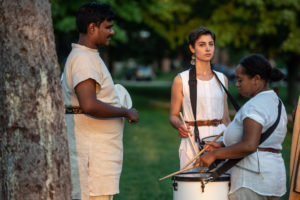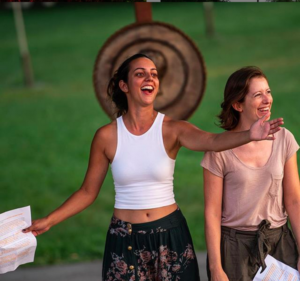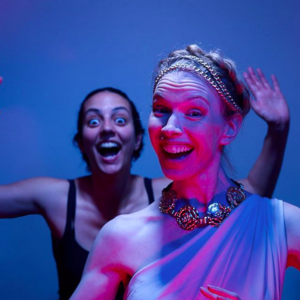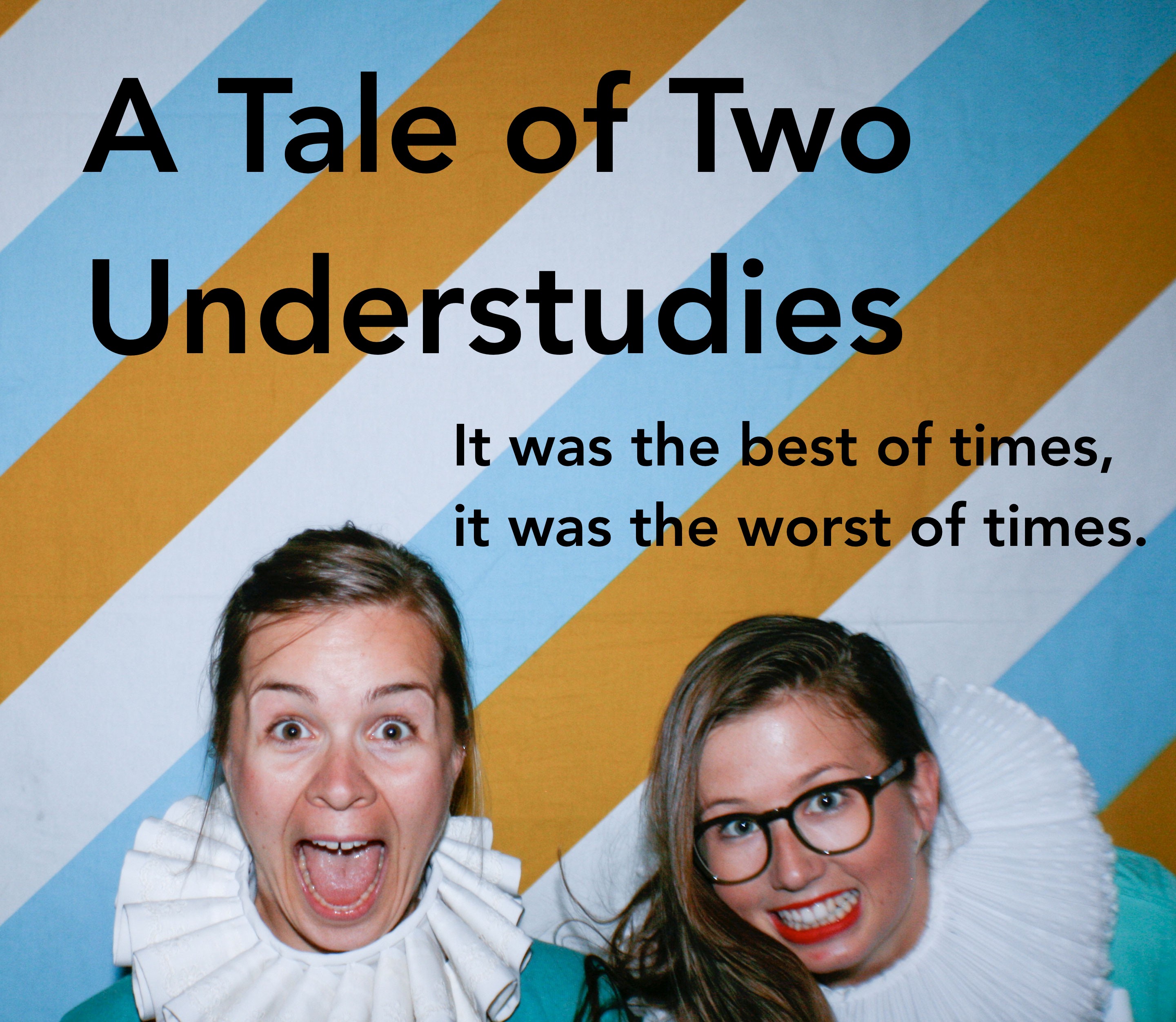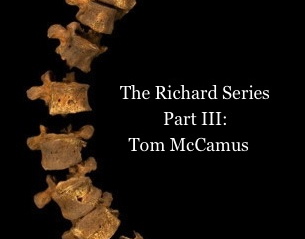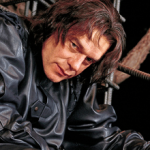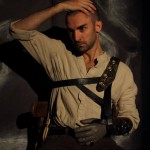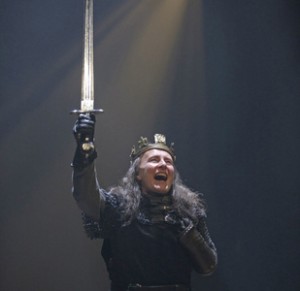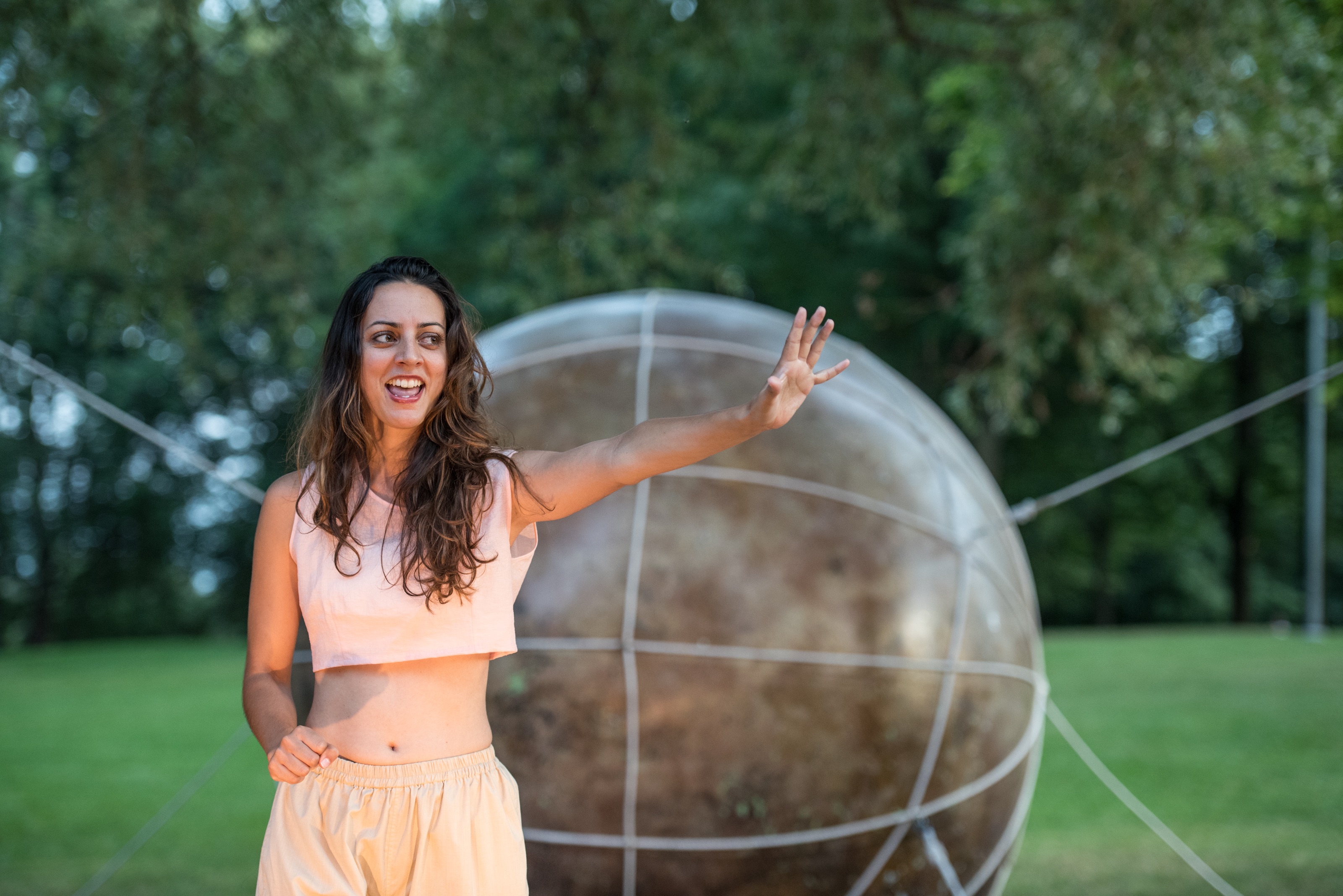
Shakespeare in the Ruff is happy to appoint Eva Barrie as our Co-Artistic Director! Eva, who has been the Associate Artistic Director for two years, will join Kaitlyn Riordan at the helm.
We asked three Ruff experts to interview Eva about this new role: Sienna Singh, Jahnelle Jones-Williams and Troy Sarju – graduates of the Young Ruffian Program, who became our Young Ruffian Chorus in Portia’s Julius Caesar. As emerging artists and future leaders themselves, they interviewed Eva and gave her some advice.
Sienna: What excites you most about this new role? What do you think will be the biggest challenge?
What I’m most excited about are the challenges! One of which will inevitably be fielding the question of “who really calls the shots?” (aka “who has the last call?” or “who wears the pants” [at the time of writing, both Kaitlyn and I are wearing skirts]). I’m collaborative in my art-making, so naturally, I’m collaborative in my leadership style. Kaitlyn and I have worked together closely, and most major decisions were made together. Now the financial and organizational structure of the company match how we best work. So, we aren’t really splitting leadership, we’re doubling it. That opens up a lot of exciting possibilities.
This doesn’t mean we don’t disagree – we do, and that’s great. Conflict is a necessary part of theatre. I have a deep respect for Kaitlyn, and we both have a deep respect for the power of theatre. At the end of the day, what’s best for our community guides our decisions. The challenges that comes from disagreement – having to articulate, having to listen, and having to put your ego aside – help us grow as artists.
A second, ever-present challenge is that I love Shakespeare… sometimes. As a biracial feminist, it’s pretty tough for me to approach the work without cringing. There’s a lot about Shakespeare that’s connected to colonialism, white supremacy, and patriarchal structures, and I spend long swaths of time wondering if/how I’m reinforcing those systems by presenting Shakespeare (you know, your regular Sunday brunch thoughts). I’m excited to truly grapple with this conflict. You can’t wrestle something if you’re watching from the sidelines, you’ve got to get in the ring. I don’t expect an easy answer – I’m not looking for easy anyway. Sienna, text me in a few years and I’ll let you know what I’ve mulled over.
Sienna: If you could swap bodies with anyone, dead or alive, who would it be and why?
Beyoncé. Any other answer is a waste of a magical swap.
Jahnelle: Why do you like working with Ruff?
The people. I’ve surrounded myself by some pretty stellar hearts. From the Danforth barista that knows my usual, to the artists that open their hearts to the park, to the ever-supportive Board of Directors, to my drum-beating rock star Old Ruffians, I couldn’t ask for a better community.
 I’m especially grateful for my work-wife, Kaitlyn. When we first chatted about my joining the company two years ago, I shared the fact that I hadn’t always felt welcomed into Shakespeare, and that despite it being so “universal”, I never saw families that looked or sounded like mine, and that was something I wanted to change. She’s never made assumptions, she’s never been afraid to ask questions, and she’s always listened with an open heart. She’s a true partner, and I couldn’t ask for better.
I’m especially grateful for my work-wife, Kaitlyn. When we first chatted about my joining the company two years ago, I shared the fact that I hadn’t always felt welcomed into Shakespeare, and that despite it being so “universal”, I never saw families that looked or sounded like mine, and that was something I wanted to change. She’s never made assumptions, she’s never been afraid to ask questions, and she’s always listened with an open heart. She’s a true partner, and I couldn’t ask for better.
Jahnelle: What is your favourite dish? And why? (ex.bowl, plate)
Little ceramic ramekins. I think people make souffles in them (I once warmed nacho cheese in one). They can be so hot and so cool: my life goal.
Troy: If there is anything my time with Ruff has taught me, it is that community is very important. How is implementation of inclusive performances (such as partnering with Autism Ontario, live captions, etc) important to community-building?
It’s important because it’s okay if you don’t understand someone. It’s okay if their lived experiences are different than yours. It’s okay if they are fighting different fights than you. We tend to feel safe with people similar to us, and afraid when someone challenges what we understand as “normal.” If we get stuck on certain ideas of “normal,” then we are limiting our possibilities. Sameness breeds sameness (as President Michelle Obama says). Vibrant communities need to be challenged and need different and diverse voices in order to grow. Otherwise, what are we all doing here?
Troy: If you could have any superpower, what would it be?
To be able to body-swap with Beyoncé.
Advice from the Old Ruffians
Sienna:
My advice to Eva is to trust the company and it’s history over the past 7 years. Remember the love, hard work, and spirit that has gone into each and every show, and the community that has been created around them. And remember, Jack and Diane will always be there for you!
Jahnelle:
Always remember:
1. To drink your water because the sun is no joke.
2. There is not limit on how many times you can make the cast do something ‘uno mas’.
Troy:
Getting an everything bagel is normally a great choice but sometimes everything can be too much and that’s okay too. Get the bagel that you need and be present with your bagel.
The Old Ruffians on Eva
Sienna:
Eva will be an amazing Artistic Director for Ruff because of her true love of the work, the company, and the people involved. Seeing her get excited about the work (or even just a silly joke) is so fun and intoxicating. She has such innate leadership qualities, knowing when to step in, and when to step back. Her brain is full of ideas, and I can’t wait to see which ones she will bring to the company! Best of luck Eva!
Jahnelle:
Eva brings her heart and her smarts to her work and I know that she will make sure to fight for innovative shows, accessibility, and diverse casts, only enhancing all the great things about Shakespeare in the Ruff.
Troy:
Eva will be a great Artistic Director of Ruff because she allows every single individual to blossom in any creative space she is a part of. She is a very capable leader. I am so happy for Ruff and looking forward to all of the great things the company will accomplish, now with TWO astounding women leading the artistic charge.

